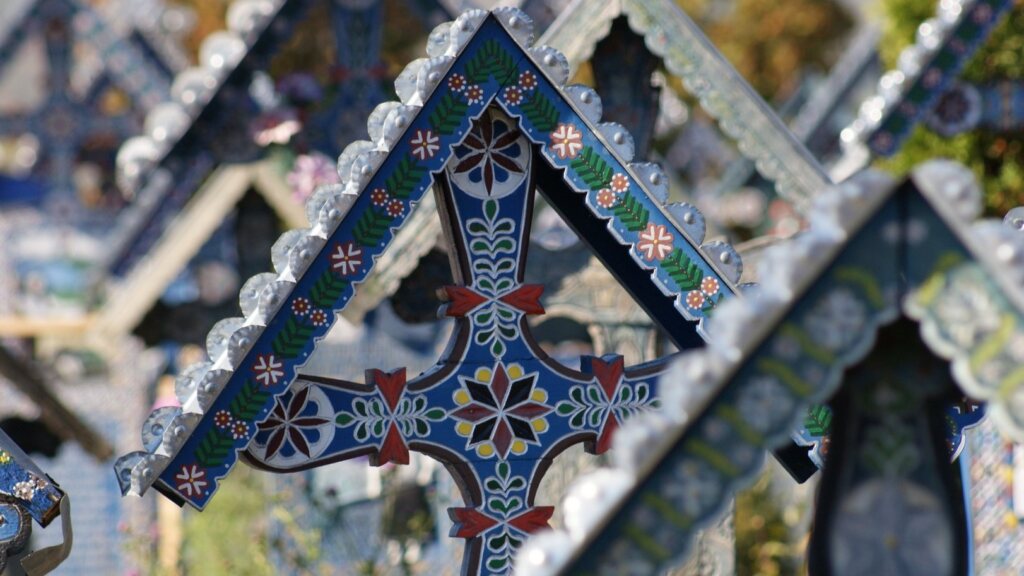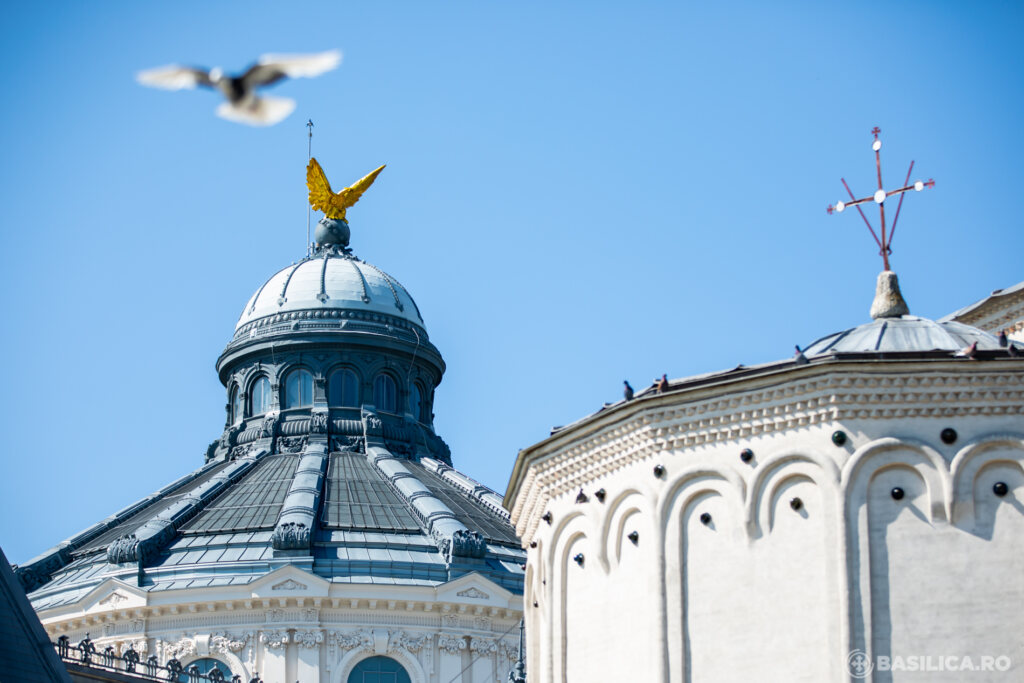Today, 16 November 2014, the Orthodox Church is on the 25th Sunday after Pentecost. The evangelical pericope of Luke 10:25-37 presenting the Good Samaritan was read in all the Orthodox Churches.
On one occasion an expert in the law stood up to test Jesus. “Teacher,” he asked, “what must I do to inherit eternal life?” “What is written in the Law?”he replied.“How do you read it?” He answered, “‘Love the Lord your God with all your heart and with all your soul and with all your strength and with all your mind];and, ‘Love your neighbour as yourself.’ “You have answered correctly,”Jesus replied.“Do this and you will live.” But he wanted to justify himself,so he asked Jesus, “And who is my neighbour?” In reply Jesus said:“A man was going down from Jerusalem to Jericho, when he was attacked by robbers. They stripped him of his clothes, beat him and went away, leaving him half dead. A priest happened to be going down the same road, and when he saw the man, he passed by on the other side. So too, a Levite, when he came to the place and saw him, passed by on the other side. But a Samaritan,as he travelled, came where the man was; and when he saw him, he took pity on him. He went to him and bandaged his wounds, pouring on oil and wine. Then he put the man on his own donkey, brought him to an inn and took care of him. The next day he took out two denariiand gave them to the innkeeper. ‘Look after him,’ he said, ‘and when I return, I will reimburse you for any extra expense you may have.’ “Which of these three do you think was a neighbour to the man who fell into the hands of robbers?” The expert in the law replied, “The one who had mercy on him.” Jesus told him,“Go and do likewise.”
The Good Samaritan is the image of the love of Christ in humans
His Beatitude Daniel, Patriarch of the Romanian Orthodox Church delivered a sermon, in the patriarchal chapel of the Patriarchal Residence, in which he explained the teaching of the Gospel of the day. The Good Samaritan is the image of the love of Christ in humans, and the pericope the Saviour said in today’s Gospel is a guide for the life of the Church and of every Christian, underlined His Beatitude Daniel in his sermon.
“We see in this Gospel that the Good Samaritan is the image of the love of Christ in humans. The Church scheduled the pericope of the Good Samaritan related by Jesus Christ, our Saviour, to be read on the 25th Sunday after Pentecost. The pericope is an interpretation of the mystery of the salvation of the human nation for the life of the Church and for every Christian. Because this Gospel is related to the beginning of the Advent of the Nativity of the Lord, the pericope of the Good Samaritan helps us understand its spiritual significance, the Advent united with the prayer and mercy as an inner ascension of the soul in the communion of the saints who accomplish the will of God in history. All this prepare us to receive Christ, our Lord, in the cave of our soul, who is spiritually born in the life of every Christian according to his/her faith and love for God and for humans”, His Beatitude said.
The descent from Jerusalem to Jericho of a man means the degradation and alienation of the sinful humankind from God, the Patriarch of Romania also showed: “The parable Jesus Christ, our Saviour, presented in the Gospel of the day shows the very mystery of the salvation of the humankind.
The way down from Jerusalem to Jericho means the degradation of humankind and their alienation from God
The man’s going down from Jerusalem to Jericho represents the alienation of the sinful humankind from God, the Patriarch of Romania has also shown: “The parable Jesus Christ, our Saviour, present in today’s Gospel shows the very mystery of the salvation of the humankind. The man who was going down from Jerusalem to Jericho attacked by robbers, stripped of his clothes, wounded and left half deaf represents the humankind who fell victim to many bad passions because of their sins, which are the true robbers and killers of souls. The way down from Jerusalem to Jericho means the degradation of humankind through their alienation from God. Thus, the sinful man is ruined, becomes almost spiritually dead and goes down to biological death, because the payment for sin is death”.
The merciful Samaritan represents Christ, the Saviour Himself
The Primate of the Romanian Orthodox Church showed in his sermon that the good deeds of the merciful Samaritan mean the rising of the human nature fallen in sin.
“The one who feels pity for the wounded man is a foreign traveller, different as nation and faith, not a friend or conational of the wounded one. Moreover, the merciful traveller is somebody from whom a Jew never expected any help. Thus, what distinguishes this Samaritan from the priest and from the Levite of the Old Law is the mercy and kindness of his soul. In this sense, the Gospel says: He went to him and bandaged his wounds, pouring on oil and wine. Then he put the man on his own donkey, brought him to an inn and took care of him. This good deed of the Good Samaritan, who symbolises Christ, the Saviour, means the rising of the human nature fallen in sin and injured by passions. Christ, the Lord, pours the oil of Baptism over the humankind suffering from sin – the Holy Great Myrrh – which is given to man to be healed from sin and for spiritual growth. The wine poured over the wounds represents the wine of the Holy Eucharist, namely the Blood of the Lord, which man receives at the Holy Communion together with the Body of the Lord for the healing of the soul and of the body, for the forgiveness of sins and everlasting life”, His Beatitude also said.
The deed of the Good Samaritan represents the work of the merciful love of Christ for the salvation of the humans
“Therefore, today’s Gospel shows us that just a Samaritan whom none of the Jews expected to do anything good or be useful in any way did a good deed with no interest whatsoever. He does a good deed without wishing any reward or praise, only because he is sorry for the man who suffers, only because he is merciful like the Merciful God. The deed of the merciful Samaritan represents the work of the merciful love of Christ for the humans’ salvation”, the Patriarch of the Romanian Orthodox Church said.
Any man who helps his fellow being is a Good Samaritan
His Beatitude showed that anybody can become a Good Samaritan through the help given to his neighbour in hard circumstances: “Any man can become the merciful Good Samaritan, the mercy of Jesus Christ, our Saviour, just as Christ, the Lord, can show His merciful generous love in the world, if the heart of every human becomes merciful and generous. Thus, the merciful Samaritan is any human who helps his fellow being in hard cases. Our neighbour is not always the one close to us through relationship or geographic or physical rapprochement. The neighbour can be the man through whom God helps us with His grace, often quite unexpectedly.”
The neighbour is the man through whom God helps with His grace, often quite unexpectedly
“The neighbour is the man through whom God helps with His grace, often quite unexpectedly. Many times the help comes from a stranger whom we have never seen before or from whom we have never expected any help. Therefore, today’s Gospel shows us that every human of the world, no matter his ethnic origin, social state or age, has a unique and eternal value. Every human can become the hands of the merciful love of God by which He works in the world to raise or heal those injured physically and spiritually. God has often worked in the history of the Romanian people through foreigners, as an answer to their prayers to get freedom and national unity. For example, Great Romania was made especially through the then leaders of Romania king Ferdinand and queen Mary who had no Romanian blood in their veins. When God wants to raise and help a people, He works through whom He wants, when He wants and how He wants, so that we learn that not only those of our nation, or related to us can help us, but rather often foreign people who love and want to help us. Thus, sometimes, the neighbour nearby is not somebody close to us or a friend, but a stranger from whom we can never expect any help, so that the grace of God surprises us when He works through him. Why that? It is because we should not hope too much in the people we know, but first of all in the help of God, Who can turn a stranger into a friend for us, while a friend of ours can become indifferent to us or even an enemy. Every one of us can be somebody’s neighbour if he becomes the hands of the merciful love of God for the people in need”, His Beatitude said.
The language of the good deeds done in concrete cases is more convincing that any words for the people in need
The urge included in the parable of the Good Samaritan is to show love for our neighbour through good deeds, not only through words: “The parable of the Good Samaritan is not only a nice story, but also a programme for all of us, an urge to good deeds, namely if we work with love and joy for other people’s salvation, we work for our own salvation too, because the grace of the merciful love of Christ unites the neighbour who helps with the neighbour helped. Certainly, we can deliver nice sermons on the love for God and for one’s neighbour, but the language of the good deeds done in concrete cases, stemmed from the sincere love, devoted and merciful, is more convincing than any sermon for the people in need, wounded by passions, suffering from disease or loneliness. The Church must organise more programmes of aid for those in need, together with the state, with various institutions or organisations and sponsors in order to relieve their sufferance. Thus, many people will feel that the Good Samaritan is not a parable of the past, but the love of Christ still working at present.”
On 23rd November 2014, the Orthodox Church will be on the 26th Sunday after the Pentecost.






